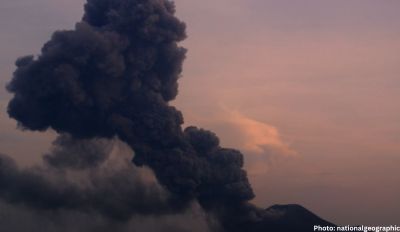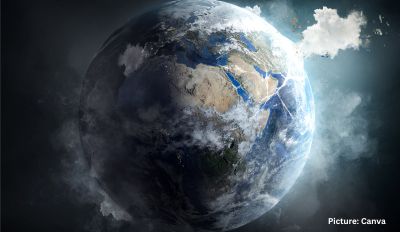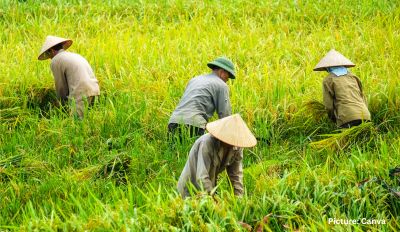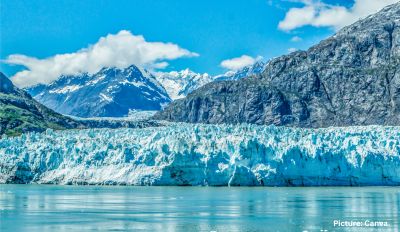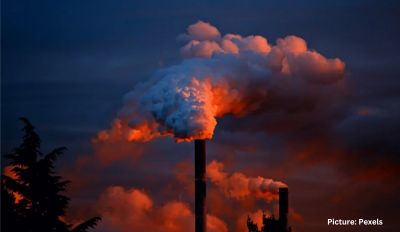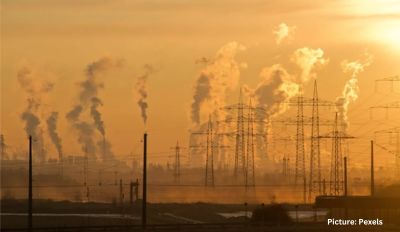An environmental watchdog has retracted an influential report that blamed five Asian countries for the majority of plastic pollution in the ocean.
The report, Stemming the Tide, from the US-based environmental advocacy group Ocean Conservancy, also included incineration and waste-to-energy as “solutions” to the plastics crisis. Published in 2015, it was decried as “waste colonialism” by hundreds of environmental, health and social justice groups across Asia.
The watchdog has now publicly apologised for unfairly “creating a narrative” about who is responsible for producing plastic waste and removed the report from its website. Its apology was welcomed on Wednesday as “long overdue” by Gaia, an alliance of 800 waste-reduction groups in 90 countries, and by Break Free From Plastic, a global movement of more than 2,000 organisations.
The report had caused years of harm, the groups said, by ignoring the role of countries in the global north for overproduction of plastic and for exporting plastic waste to developing countries in the guise of trade.
“This unprecedented report retraction is an opportunity to interrupt decades of waste colonialism,” said Froilan Grate, Gaia’s Asia-Pacific coordinator.
“Ocean Conservancy is in a position to raise awareness among other organisations and policymakers about the false narrative propagated by the report.”
When contacted by Guardian about the apology, Ocean Conservancy referred it to the statement on its website, which it published in July.
The report not only “wrongly blamed” five countries – the Philippines, China, Indonesia, Vietnam and Thailand – for the bulk of plastic pollution, but “misled, for years, governments and the public into thinking that burning plastic waste was a solution to the problem”, Grate said.
Gaia also said that Ocean Conservancy had underestimated the true cost of incineration in terms of climate and public health.
Moreover, Ocean Conservancy has admitted its error in failing to look at the contributions of Asia-Pacific communities seeking solutions to plastic waste, whom Grate said had been “disproportionately impacted” by the report. It is now engaged in a process of “restorative justice” by engaging with groups in Asia, he said.
Stemming the Tide was written by the consultancy McKinsey, with a steering group including the World Wildlife Fund, the Coca-Cola Company, Dow Chemical and the American Chemistry Council.
Christie Keith, Gaia’s international coordinator, said the five Asian countries named in the report were not to blame for plastic waste. “That fault lies with the corporations that make and push out ever-increasing quantities of plastic,” she said. “And those fighting for zero-waste community solutions deserve to be honoured and celebrated, not attacked.”
Satyarupa Shekhar, Asia-Pacific coordinator for Break Free From Plastic, said Ocean Conservancy’s report “diluted existing restrictions on incineration and opened the doors to false solutions and controversial techno-fixes to deal with the plastic pollution crisis”.
In the Philippines, a national ban on incineration is threatened by new proposals to allow waste-to-energy plants, while in Indonesia, the government continues to push for waste incineration despite a supreme court ruling revoking presidential regulations to speed up the development of waste-based power plants or incinerators.
Stemming the Tide has frequently been cited by lawmakers and US federal agencies such as the Environmental Protection Agency.
Sonia Mendoza, chair of Mother Earth Foundation in the Philippines, said: “Each country should be responsible for the waste it generates and not export it under the guise of ‘trade’.”
Understanding of ocean plastic waste, including its origins, has evolved in recent years.
In the statement on its website, Ocean Conservancy said it “failed to confront the root causes of plastic waste or incorporate the effects on the communities and NGOs working on the ground in the places most impacted by plastic pollution”. Including incineration and waste-to-energy as acceptable solutions to the plastic crisis was wrong, it said.
“We did not consider how these technologies support continued demand for plastic production and hamper the move to a circular economy and a zero-carbon future.”
“Further, by focusing so narrowly on one region of the world (east and south-east Asia), we created a narrative about who is responsible for the ocean plastic pollution crisis – one that failed to acknowledge the outsized role that developed countries, especially the United States, have played and continue to play in generating and exporting plastic waste to this very region. This too was wrong.”
Stemming the Tide was based on a paper published in Science on February 2015, which estimated for the first time how much plastic entered the ocean from mismanaged waste on land, and ranked all 192 coastal countries accordingly.
Since then, data has been published showing that the US ranks third among countries contributing to coastal plastic pollution and challenges the widely held belief that the US is adequately managing its pollution, underlining its waste footprint to developing nations.
Other research, which Ocean Conservancy is now promoting, recommends interventions to reduce, reuse and better manage plastic across all economies.
There can be no more hiding, and no more denying. Global heating is supercharging extreme weather at an astonishing speed. Guardian analysis recently revealed how human-caused climate breakdown is accelerating the toll of extreme weather across the planet. People across the world are losing their lives and livelihoods due to more deadly and more frequent heatwaves, floods, wildfires and droughts triggered by the climate crisis. At the Guardian, we will not stop giving this life-altering issue the urgency and attention it demands. We have a huge global team of climate writers around the world and have recently appointed an extreme weather correspondent.
Our editorial independence means we are free to write and publish journalism which prioritises the crisis. We can highlight the climate policy successes and failings of those who lead us in these challenging times. We have no shareholders and no billionaire owner, just the determination and passion to deliver high-impact global reporting, free from commercial or political influence.
And we provide all this for free, for everyone to read. We do this because we believe in information equality. Greater numbers of people can keep track of the global events shaping our world, understand their impact on people and communities, and become inspired to take meaningful action. Millions can benefit from open access to quality, truthful news, regardless of their ability to pay for it.
An environmental watchdog has retracted an influential report that blamed five Asian countries for the majority of plastic pollution in the ocean.
The report, Stemming the Tide, from the US-based environmental advocacy group Ocean Conservancy, also included incineration and waste-to-energy as “solutions” to the plastics crisis. Published in 2015, it was decried as “waste colonialism” by hundreds of environmental, health and social justice groups across Asia.
The watchdog has now publicly apologised for unfairly “creating a narrative” about who is responsible for producing plastic waste and removed the report from its website. Its apology was welcomed on Wednesday as “long overdue” by Gaia, an alliance of 800 waste-reduction groups in 90 countries, and by Break Free From Plastic, a global movement of more than 2,000 organisations.
The report had caused years of harm, the groups said, by ignoring the role of countries in the global north for overproduction of plastic and for exporting plastic waste to developing countries in the guise of trade.
“This unprecedented report retraction is an opportunity to interrupt decades of waste colonialism,” said Froilan Grate, Gaia’s Asia-Pacific coordinator.
“Ocean Conservancy is in a position to raise awareness among other organisations and policymakers about the false narrative propagated by the report.”
When contacted by Guardian about the apology, Ocean Conservancy referred it to the statement on its website, which it published in July.
The report not only “wrongly blamed” five countries – the Philippines, China, Indonesia, Vietnam and Thailand – for the bulk of plastic pollution, but “misled, for years, governments and the public into thinking that burning plastic waste was a solution to the problem”, Grate said.
Gaia also said that Ocean Conservancy had underestimated the true cost of incineration in terms of climate and public health.
Moreover, Ocean Conservancy has admitted its error in failing to look at the contributions of Asia-Pacific communities seeking solutions to plastic waste, whom Grate said had been “disproportionately impacted” by the report. It is now engaged in a process of “restorative justice” by engaging with groups in Asia, he said.
Stemming the Tide was written by the consultancy McKinsey, with a steering group including the World Wildlife Fund, the Coca-Cola Company, Dow Chemical and the American Chemistry Council.
Christie Keith, Gaia’s international coordinator, said the five Asian countries named in the report were not to blame for plastic waste. “That fault lies with the corporations that make and push out ever-increasing quantities of plastic,” she said. “And those fighting for zero-waste community solutions deserve to be honoured and celebrated, not attacked.”
Satyarupa Shekhar, Asia-Pacific coordinator for Break Free From Plastic, said Ocean Conservancy’s report “diluted existing restrictions on incineration and opened the doors to false solutions and controversial techno-fixes to deal with the plastic pollution crisis”.
In the Philippines, a national ban on incineration is threatened by new proposals to allow waste-to-energy plants, while in Indonesia, the government continues to push for waste incineration despite a supreme court ruling revoking presidential regulations to speed up the development of waste-based power plants or incinerators.
Stemming the Tide has frequently been cited by lawmakers and US federal agencies such as the Environmental Protection Agency.
Sonia Mendoza, chair of Mother Earth Foundation in the Philippines, said: “Each country should be responsible for the waste it generates and not export it under the guise of ‘trade’.”
Understanding of ocean plastic waste, including its origins, has evolved in recent years.
In the statement on its website, Ocean Conservancy said it “failed to confront the root causes of plastic waste or incorporate the effects on the communities and NGOs working on the ground in the places most impacted by plastic pollution”. Including incineration and waste-to-energy as acceptable solutions to the plastic crisis was wrong, it said.
“We did not consider how these technologies support continued demand for plastic production and hamper the move to a circular economy and a zero-carbon future.”
“Further, by focusing so narrowly on one region of the world (east and south-east Asia), we created a narrative about who is responsible for the ocean plastic pollution crisis – one that failed to acknowledge the outsized role that developed countries, especially the United States, have played and continue to play in generating and exporting plastic waste to this very region. This too was wrong.”
Stemming the Tide was based on a paper published in Science on February 2015, which estimated for the first time how much plastic entered the ocean from mismanaged waste on land, and ranked all 192 coastal countries accordingly.
Since then, data has been published showing that the US ranks third among countries contributing to coastal plastic pollution and challenges the widely held belief that the US is adequately managing its pollution, underlining its waste footprint to developing nations.
Other research, which Ocean Conservancy is now promoting, recommends interventions to reduce, reuse and better manage plastic across all economies.
There can be no more hiding, and no more denying. Global heating is supercharging extreme weather at an astonishing speed. Guardian analysis recently revealed how human-caused climate breakdown is accelerating the toll of extreme weather across the planet. People across the world are losing their lives and livelihoods due to more deadly and more frequent heatwaves, floods, wildfires and droughts triggered by the climate crisis. At the Guardian, we will not stop giving this life-altering issue the urgency and attention it demands. We have a huge global team of climate writers around the world and have recently appointed an extreme weather correspondent.
Our editorial independence means we are free to write and publish journalism which prioritises the crisis. We can highlight the climate policy successes and failings of those who lead us in these challenging times. We have no shareholders and no billionaire owner, just the determination and passion to deliver high-impact global reporting, free from commercial or political influence.
And we provide all this for free, for everyone to read. We do this because we believe in information equality. Greater numbers of people can keep track of the global events shaping our world, understand their impact on people and communities, and become inspired to take meaningful action. Millions can benefit from open access to quality, truthful news, regardless of their ability to pay for it.


